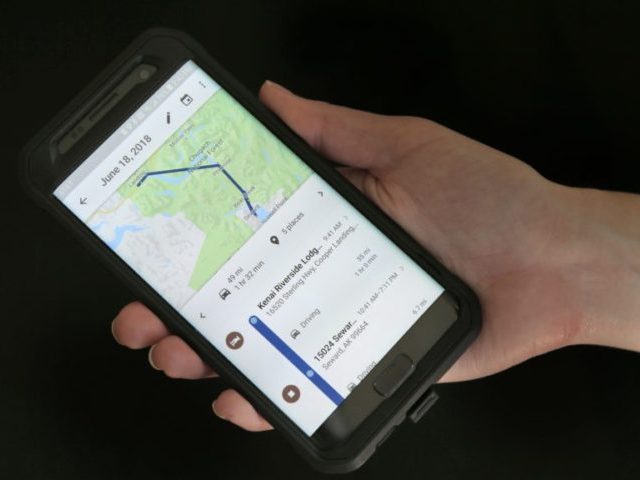SAN FRANCISCO (AP) — Google has revised a help page that erroneously described how its “Location History” setting works, clarifying for users that it still tracks their location even if they turn the setting off.
On Monday, an Associated Press investigation revealed that several Google apps and websites store user location even if users have turned off Location History. Google has not changed its location-tracking practice in that regard.
But its help page now states: “This setting does not affect other location services on your device.” It also acknowledges that “some location data may be saved as part of your activity on other services, like Search and Maps.”
Previously, the page stated: “With Location History off, the places you go are no longer stored.”
The AP observed that the change occurred midday Thursday, three days after the AP’s initial report.
The AP investigation found that even with Location History turned off, Google stores user location when, for instance, the Google Maps app is opened, or when users conduct Google searches that aren’t related to location.
In a Thursday statement to the AP, Google said: “We have been updating the explanatory language about Location History to make it more consistent and clear across our platforms and help centers.”
Privacy experts have assailed Google’s policy of saving user location data that it doesn’t technically classify as “location history.”
Huge tech companies are under increasing scrutiny over their data practices, following a series of privacy scandals at Facebook and new data-privacy rules recently adopted by the European Union. Last year, the business news site Quartz found that Google was tracking Android users by collecting the addresses of nearby cellphone towers even if all location services were off. Google changed the practice and insisted it never recorded the data anyway.
Critics say Google’s insistence on tracking its users’ locations stems from its drive to boost advertising revenue.

COMMENTS
Please let us know if you're having issues with commenting.